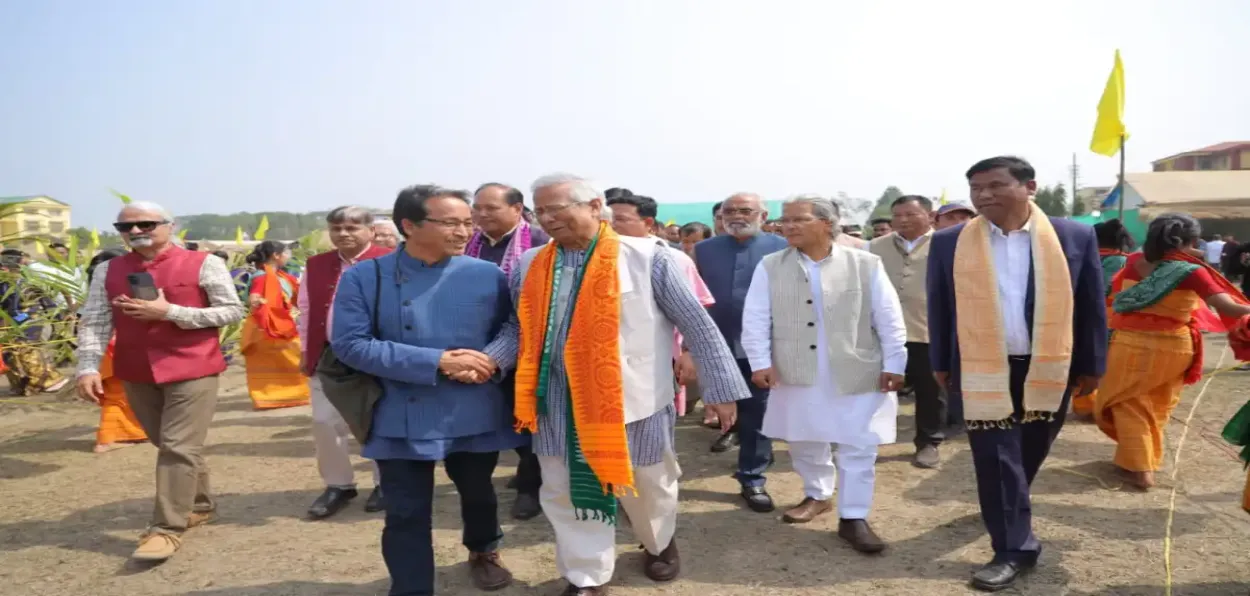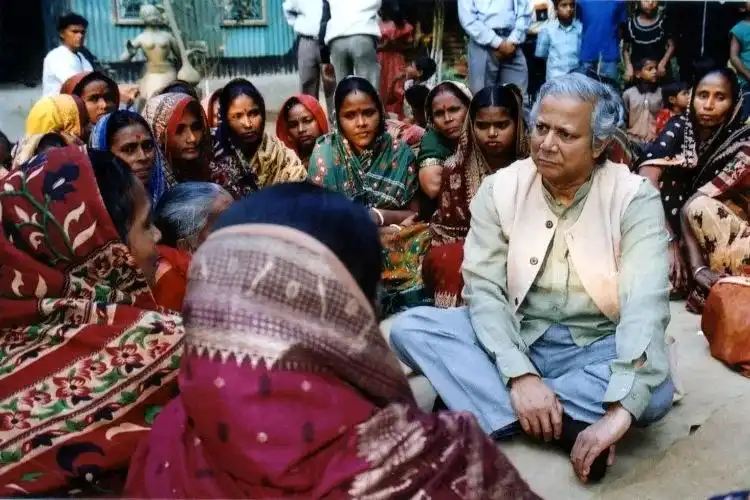
Daulat Rahman/Guwahati
Nobel laureate and Bangladeshi economist Muhammad Yunus believes that global warming and the concentration of wealth among the few are creating a 'greed-based’ economic system. He said the economy based on human greed is against sustainable and balanced development policies.
He was speaking at the first Bodoland International Knowledge Festival in eastern Assam's Kokrajhar district on February 27.
Muhammad Younis said at such a system must be changed immediately to ensure a balanced development of all the people of society.
He said that under such an economic system, nature and the ecosystem are being destroyed, which has an impact on the global economy.
"Another danger of a greed-based economy is the concentration of wealth among the few," said Muhammad Yunus. The Nobel laureate warned that artificial intelligence systems can cut down on jobs in the future.
“If there is artificial intelligence, what is the use of human intelligence? Technology is good but we should not be slaves to it. We must use technology for the welfare of mankind,” said Muhammad Yunus.

Muhammad Yunus with women in Bangladesh
Muhammad Yunus, founder of Grameen Bank in Bangladesh, also known as the "Poor People's Banker" around the world, said that he is now working on a “three zero” policy which means zero Global warming, zero concentration of wealth among a few, and zero unemployment.
In 2006, Muhammad Yunus was awarded the Nobel Peace Prize for founding the Grameen Bank and advancing the concepts of microcredit and microfinance. These loans are given to entrepreneurs who do not qualify for conventional bank loans.
Yunus and Grameen Bank were jointly awarded the Nobel Peace Prize for fighting poverty through microcredit and microfinance. More than 1 crore poor women became entrepreneurs by availing of loans from Grameen Bank.
In 1972, Muhammad Yunus, a young economics professor, who had just received his Ph.D. from Vanderbilt University in the US, returned to Bangladesh (formerly known as East Pakistan) after it became an independent country.
He also accepted the position of Associate Professor as well as Director of the Department of Economics at Chittagong University. But the terrible famine that broke out in Bangladesh in 1974 left a deep mark on him.
"I saw thousands of people dying of hunger. I was feeling so hopeless that I couldn't do anything for them. My conscience was troubled. I thought that if I couldn't stop one person from dying of hunger, all my knowledge and education would be wasted," said Muhammad Yunus.
He chose to personally tackle the problems facing the poor in Bangladesh, visiting the streets of Jobra village near Chittagong University with some of his students.
Muhammad Yunus made several unsuccessful attempts to convince some traditional financial institutions, who believed that the poor were insolvent and could not access credit due to a lack of genuine collateral. So, they started a pilot project in Jobra village, putting up their own money as collateral for the loan. After a few years, it became a success story, and the poor paid off their loans on time.
Muhammad Yunus later set up a bank uniquely for poor customers called Grameen Bank, which gave loans without real collateral, to unknown customers and without any legal procedures. The success of the Grameen microfinance model has influenced hundreds of countries around the world, including the United States.
ALSO READ: Yusuf Khan to launch the first private university in Mewat for benefit of Meo community
Bodoland International Knowledge Festival, the first international event of its kind in the region is being organized by Bodoland University in collaboration with Bodoland Territorial Region from February 27 to March 2. Muhammad Yunus will implement his microcredit and microfinance project in Bodoland to help the poor.
